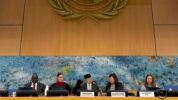OJK Launches Three-Phase Strategy to Boost Crypto Literacy and Regulation
JAKARTA, RAKYAT NEWS – The Financial Services Authority (OJK) of Indonesia is stepping up efforts to enhance public understanding of cryptocurrency assets, aiming to improve investor knowledge and foster growth in the crypto sector. In a recent statement, Hasan Fawzi, the Head of OJK’s Financial Technology and Digital Assets Innovation, emphasized the importance of financial education for crypto assets to safeguard consumers. He highlighted the role of key stakeholders, especially crypto traders, in promoting literacy and financial inclusion for digital assets.
This push for improved literacy coincides with a significant regulatory change. Since January 2025, the oversight and regulation of cryptocurrency assets were transferred from the Ministry of Trade (Kemendag) and the Commodity Futures Trading Regulatory Agency (Bappebti) to OJK. This shift is mandated by Indonesia’s Financial Sector Development and Strengthening Law (UU PPSK) and Government Regulation No. 49/2024 on the Transfer of Digital Asset Oversight to OJK.
In response to this transition, OJK has developed a structured strategic framework to accommodate market dynamics, encourage innovation, and maintain stability and protection for all involved stakeholders. This framework outlines a three-phase approach for strengthening crypto literacy, which is set to unfold gradually and systematically.
The first phase of OJK’s plan is the transition phase. During this period, the authority is focused on ensuring a smooth handover of responsibilities, aiming to build market confidence and stability. This “smooth landing” approach seeks to minimize disruptions in the crypto ecosystem while the regulatory oversight is transferred.
The second phase focuses on development. Here, OJK will evaluate existing regulations, licensing processes, and supervision mechanisms. The goal is to refine these areas, aligning them with evolving market conditions and technological advancements to ensure that the regulatory environment remains effective and relevant.


























Tinggalkan Balasan